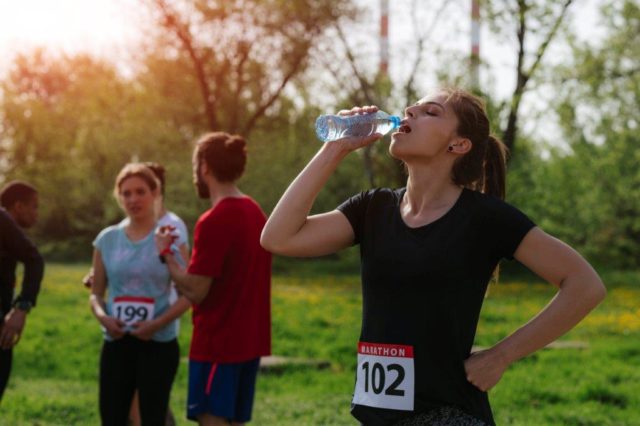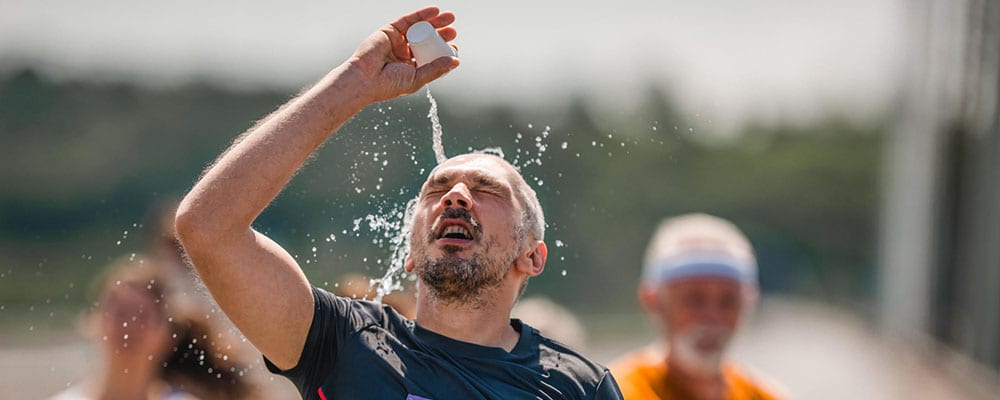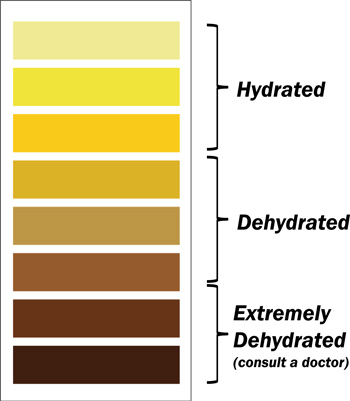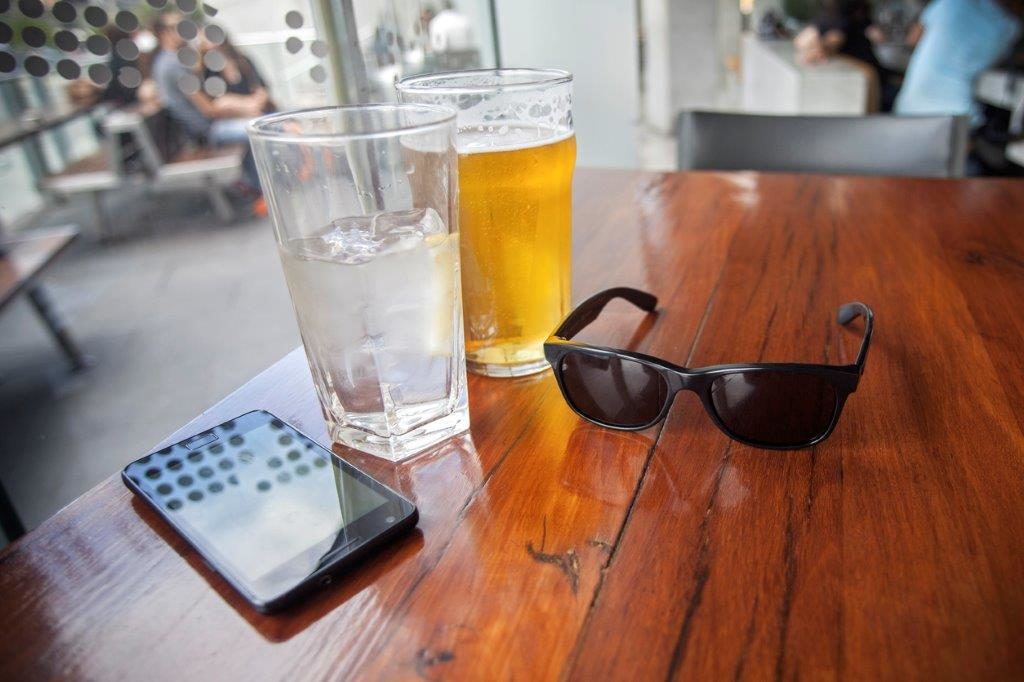
Training for a marathon?
Well amongst several factors such as your training technique, sleep, and nutritional intake, your hydration status plays a vital role in both your marathon performance and recovery.
Water has multiple body functions from maintaining your blood volume, lubricating your joints for movement and transporting nutrients around your body. Yet during exercise (including running), it plays the key role of regulating your body temperature. More specifically, it allows your body to cool down through the process of sweating.
So why worry about your fluid intake?
When completing prolonged periods of exercise, a prime example being a marathon, your body temperature increases and as previously mentioned, causes you to sweat. However, here fluid and electrolytes are lost and if continued, dehydration can occur. Consequently, dehydration which can occur from as minimal of a 2% fluid loss can result in early fatigue, reduced cognition and a further increase in body temperature and heart rate, all affecting your performance.
 It is also important to mention the similarly detrimental effects of being over hydrated when exercising, a condition referred to as hyponatremia. This results from reduced levels of sodium in the blood typically occurring when large amounts of water are consumed in a short period of time. For instance, it can affect marathon runners (undergoing endurance, long distance running usually at a slower pace) who consume large portions of water, further diluting their sodium blood levels if they had been previously low from sweating. Symptoms mainly include stomach discomfort, vomiting, and headaches and in more severe cases, comas and death can occur.
It is also important to mention the similarly detrimental effects of being over hydrated when exercising, a condition referred to as hyponatremia. This results from reduced levels of sodium in the blood typically occurring when large amounts of water are consumed in a short period of time. For instance, it can affect marathon runners (undergoing endurance, long distance running usually at a slower pace) who consume large portions of water, further diluting their sodium blood levels if they had been previously low from sweating. Symptoms mainly include stomach discomfort, vomiting, and headaches and in more severe cases, comas and death can occur.
Achieving suitable hydration is therefore vital for before, during and after your marathon.
Assessing Your Hydration:
You can assess your hydration by looking at your weight, level of thirst and urine colour, which should be pale yellow/clear.
If you have lost weight, have a dry/sticky mouth, feel thirsty and your urine colour is orange or brown in colour, these are signs of dehydration.
 Achieving Your Fluid Requirements and Hydration:
Achieving Your Fluid Requirements and Hydration:
Specific fluid requirements depend on several factors including individual body weight, the intensity of exercise and exercise environment i.e. warm weather conditions typically increase rates of sweating causing increased fluid needs.
General population guidelines by the Food Safety Authority of Ireland (2011) advise drinking 8-10 cups of water daily. This equals approximately 2000 ml with tea, coffee and certain foods such as cucumber, watermelon, and soups also accounting for your fluid intake.
However, specific fluid recommendations for athletes when undergoing exercising (ADA, 2000; SAI, ILSI & NIN, 2006; Lal, 2006) have been devised and include:
Depending on the severity and duration of exercise, the following fluid type recommendations include:
| Severity and Duration of Exercise | Fluid |
| Low-Moderate
Less than 1 Hour |
Water |
| Moderate-Heavy
Above 1 Hour/If Hot Weather Conditions i.e. Completing a Marathon |
Isotonic drinks
i.e. Lucozade Sport/Homemade (50-80g sugar, 1L water, a sprinkle of salt) |
On the day of the marathon, fluid intake guidelines include:
Pre-Marathon (1-2 Hours): Drink 500ml of fluid
During Marathon: Drink 250ml of fluid every 15-20 minutes
Post-Marathon: Drink ml equal to body weight loss and monitor urine colour.
This can be achieved by weighing yourself before and after completing your marathon.
1kg loss = 1000ml/1L water loss.
Aim to replace fluid loss by 125-150% over 2-6 hours post marathon.
Example:
- If you lost 1kg = 1000ml fluid loss.
- Required fluid intake to rehydrate = 1250-1500ml.
A Quick Note on Alcohol
Whilst completing a marathon is undeniability an AMAZING achievement and you may have planned to celebrate with your favoured choice of alcoholic beverage, it is important not to consume alcohol directly after your marathon as it can negatively affect your recovery and hydration status.
If your planning on drinking alcohol, ensure to FIRSTLY prioritize meeting your rehydrating fluid intake as per the recommendations outlined above in addition to replacing your carbohydrate and protein stores (will discuss in later articles).
 Summary and Tips
Summary and Tips
To summarize, your fluid intake is of major importance for your marathon performance and recovery.
- Ensure you are meeting population fluid guidelines, adding further fluid intake according to your training conditions based on intensity, duration and environment.
- Be mindful whilst training of your rate of sweating as this will also inform you of how much extra fluid you both need and feel comfortable with.
- You could also practice weighing yourself pre and post-training to obtain more of an accurate idea of your fluid losses.
- Also, avoid drinking large amounts of fluid prior to starting your marathon as this can result in GI discomfort.
Finally, best of luck in your training and make sure to stay happily hydrated.


